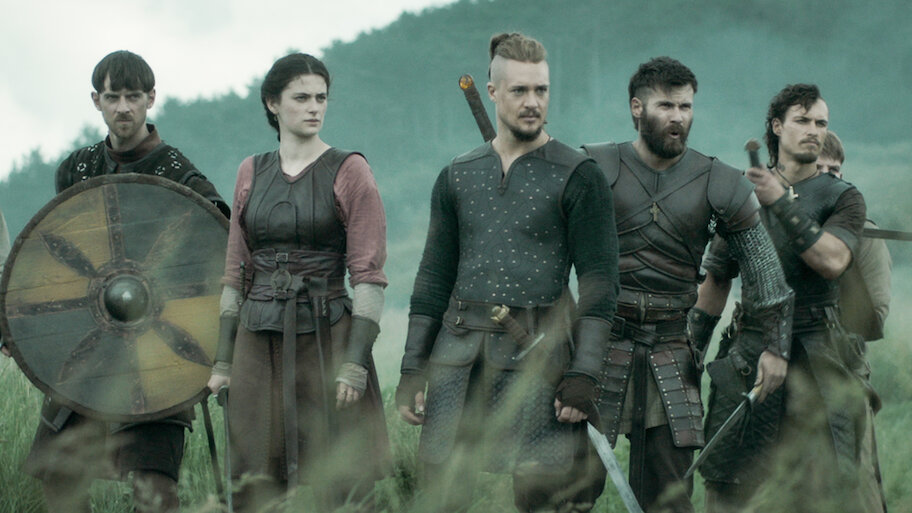The Last Kingdom – A Gritty, Powerful Tale of War, Identity, and Destiny
The Last Kingdom is a gripping historical drama series based on Bernard Cornwell’s “The Saxon Stories” novels, chronicling the brutal and transformative era of 9th and 10th century England during the Viking invasions. Premiering in 2015 and concluding in 2022 with five acclaimed seasons (followed by the 2023 film Seven Kings Must Die), the series offers a visceral, character-driven look at the birth of a nation—through the eyes of one of its most compelling fictional warriors.
At the heart of the story is Uhtred of Bebbanburg, portrayed with intensity and depth by Alexander Dreymon. Born a Saxon noble but raised by Danes after his father's death in battle, Uhtred grows into a fierce, conflicted warrior—torn between two worlds. He is neither fully Saxon nor Dane, constantly battling for his ancestral home of Bebbanburg while being drawn into the larger political and religious wars shaping England.

The series kicks off during the reign of King Alfred the Great (David Dawson), a deeply religious and visionary ruler trying to unite the fractured Anglo-Saxon kingdoms into a single nation. Uhtred becomes a reluctant ally and indispensable military leader in Alfred’s cause, though their relationship is fraught with ideological and personal tension. Where Alfred is cautious and pious, Uhtred is impulsive, passionate, and driven by loyalty to his own code of honor.
What sets The Last Kingdom apart is its focus on personal identity and moral ambiguity. Uhtred’s journey is not just about reclaiming his birthright—it’s about discovering who he is in a world where loyalties constantly shift, and right and wrong are often blurred. He navigates betrayals, love, loss, and epic battles with both ferocity and vulnerability.
The show is also known for its rich ensemble cast. Characters like Brida (Uhtred’s fiery childhood friend turned foe), Father Beocca (his spiritual father figure), Aethelflaed (the warrior princess and daughter of Alfred), and Finan (his loyal Irish companion) add emotional depth and complexity to the story. Relationships evolve over time, and no character is safe, giving the series a Game of Thrones–like unpredictability.

Visually, The Last Kingdom blends raw, gritty realism with sweeping historical scope. The battle scenes are intense and personal—muddy, chaotic, and brutal—far from the polished choreography of fantasy epics. The show also explores the spiritual conflict between Christianity and paganism, with religion playing a central role in both political power and personal belief systems.
Despite being a historical drama, the show never feels like a documentary. Its fast pacing, sharp dialogue, and emotional storytelling keep the viewer immersed. While it is more grounded than many medieval epics, The Last Kingdom still feels epic—showcasing the bloody rise of what would eventually become England.

In conclusion, The Last Kingdom is a powerful, character-rich saga of war, faith, betrayal, and destiny. Anchored by Alexander Dreymon’s standout performance and driven by intelligent writing, it’s a must-watch for fans of historical dramas, Viking stories, or anyone who loves tales of warriors fighting for more than just land—they fight for identity, justice, and legacy. “Destiny is all.”


-1751961886-q80.webp)